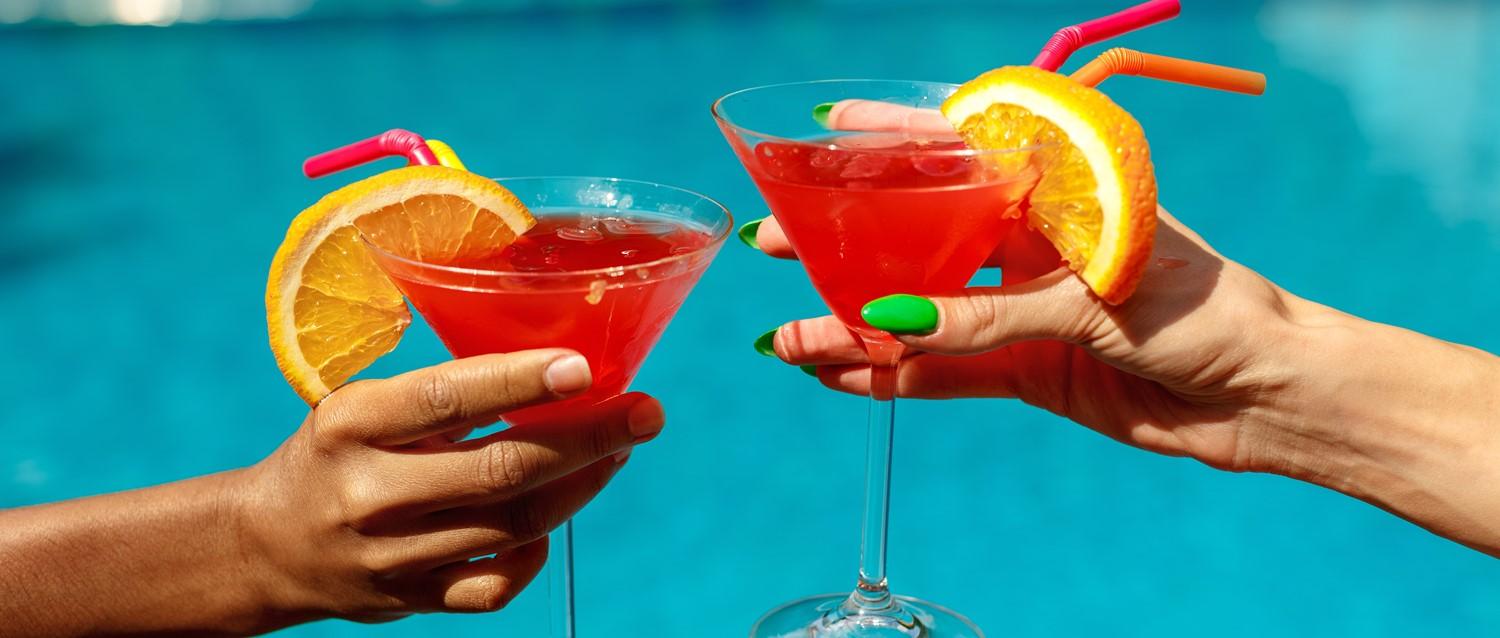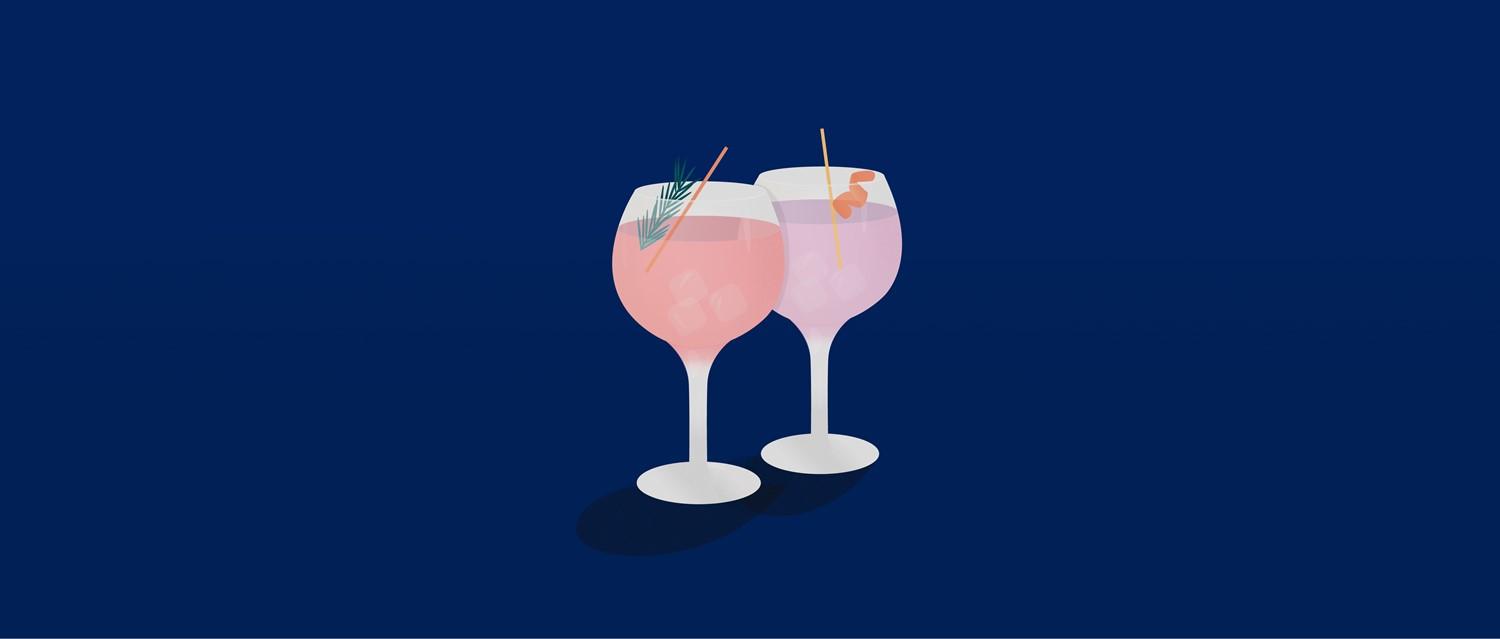
Boire au soleil : un cocktail dangereux
Peer reviewed by Dr Krishna Vakharia, MRCGPAuthored by Emily Jane BashforthOriginally published 20 Aug 2022
- TéléchargerTélécharger
- Partager
Picture the scene - it's a hot, sunny day and you're strolling through the park, or perhaps along a beach. Chances are, you'd see people drinking alcohol with their friends. However, did you know that drinking in the sun can come with a number of risks?
Dans cet article :
Poursuivre la lecture ci-dessous
What are the potential risks of drinking in the sun?
Déshydratation
Both alcohol and heat can cause dehydration, and consuming alcohol causes you to urinate more frequently. This is because alcohol is a diuretic, which means it causes the body to lose water through urine by inhibiting the production of the vasopressin hormone.
Plus, the heat from the sun can cause you to sweat more. The quantity of sweat produced can be as high as a couple of litres, depending on the heat and your activity levels. This can cause your body to lose fluids and lead to dehydration.
Dr Deborah Lee of Dr Fox Online Pharmacy explains that dehydration can have serious consequences for your health. Even if you are just 1-2% dehydrated this can make you feel sluggish and tired.
Other signs of dehydration include:
Maux de tête.
Crampes musculaires.
Dry mouth/dry lips.
Peeling skin.
Constipation.
Feeling dizzy or faint.
Dehydration is also a major cause of hangover symptoms.
Overheating
While it might be tempting to indulge in alcoholic beverages during the hot weather, alcohol and sunshine are not a good mix. Especially if the amount you've consumed makes you tipsy, or drunk, and unaware of how long you've been in the sun.
"Sitting in the sun means you are at increased risk of overheating, which has the potential to become heat exhaustion and ultimately, heatstroke," explains Dr Lee.
Did you know that each year in England and Wales, there are on average nearly 800 excess deaths associated with heat?1
"Being too hot puts strain on your heart too, increasing the risk of strokes and heart attacks."
Skin damage
It's possible you will ignore the dangers of the sun's UV rays on your skin if you aren't thinking clearly due to alcohol consumption. But, protecting your skin from the sun is important, both by wearing at least SPF 30 and seeking shade.
Excess sunlight exposure damages skin by accelerating the changes of ageing, causing loss of elasticity, wrinkling, and sagging.
In addition, excess sunlight exposure is strongly linked to the development of both melanoma and non-melanoma skin cancers.
Precautions to take when drinking in the sun
Let's be realistic - abstaining from alcohol completely during the hot summer months is difficult. However, if you are planning on drinking in the sun, you should think sensibly about it beforehand.
Dr Lee says that mindful drinking is growing in popularity. This means deciding what you will drink and sticking to the plan when going out. This helps to prevent excess consumption of alcohol and the associated risks.
"You also need to make sure you drink plenty of water. Drink one large glass of water for each alcoholic drink and keep a refillable water bottle handy if you are out and about," she adds. You can buy bottles that are specially designed to keep your drinks cold.
Other tips for drinking safely in the sun include:
Dilute your alcohol
For example, you could add soda water to a small amount of white wine to make a white wine spritzer, or add ice cubes.
Go at a steady pace
Spread out your alcoholic drinks and drink non-alcoholic drinks in between. These might be juices or water, but you may also want to explore the wide range of non-alcoholic alternatives on the market.
Avoid mixing your drinks
Drinks such as red wine, brandy, and whisky contain more congeners (substances added to alcohol to give it a reddish colour, flavour and texture). Dr Lee says these are often the main culprits when it comes to a hangover. If you are drinking, it might be wise to stick to white or clear drinks, such as white wine, gin, or vodka.
"Sparkling wines, such as champagne and prosecco, will make you feel drunk more quickly, as the bubbles facilitate the absorption of alcohol in the stomach."
Keep eating
You should never drink alcohol on an empty stomach. Food helps to delay the absorption of alcohol into the bloodstream and protects the stomach lining. Drinking without eating first also intensifies side effects.
Seek out the shade
Most of us like to sit in the sun, especially as, historically, sunny days have tended to be few and far between in the UK. But your body will thank you if you make time for the shade too and reduce your chances of heat exhaustion. If there's an opportunity for you to take a dip in a swimming pool or have a cold bath/shower, this can help you keep cool.
Additionally, when drinking in the sun, you should continue to follow the normal sun safety steps:
Wearing cool, loose-fitting clothes made of natural, not synthetic, fibres.
Wearing a wide-brimmed hat to shield your face and shoulders from the sun.
Using plenty of sun cream with SPF 30 (50 if you are more vulnerable) and reapplying throughout the day.
Sélection de patients pour Conseils sur l'alcool

Vie saine
Quels sont les avantages de l'abandon de l'alcool ?
Nous sommes nombreux à nous rendre coupables d'un excès d'alcool, en particulier lors d'une occasion spéciale ou à la fin d'une longue semaine. Cependant, l'abstinence est de plus en plus répandue et les personnes qui se tournent vers des alternatives sans alcool affirment que cela fait des merveilles pour leur santé mentale et physique.
par Lydia Smith

Santé digestive
Alcoolisme et consommation problématique d'alcool
De nombreuses personnes consomment de l'alcool. Pour certains, l'alcool est quelque chose qu'ils apprécient avec modération. D'autres consomment de l'alcool à des niveaux susceptibles d'entraîner des problèmes de santé physique ou mentale. Certaines personnes ont beaucoup de mal à contrôler ou à arrêter leur consommation d'alcool.
par le Dr Doug McKechnie, MRCGP
Poursuivre la lecture ci-dessous
What to do if you feel unwell after drinking in the sun
"If you start to feel the effects of the alcohol and the heat, go indoors. Find a cool place to lie down and elevate your feet slightly. Stop drinking alcohol and drink a pint of water. If you don't feel better within 20 minutes or so, ask for help. Call NHS 111 for advice if you or someone else suspects signs of heatstroke," says Dr Lee.
One easy way to cool yourself down is by placing a bowl of cold water in front of a fan and angling the cold breeze towards you.
Warning signs of heat exhaustion
Symptoms of heat exhaustion can creep up on you or come on quite suddenly. So, it's essential you are able to recognise them:
Maux de tête.
Dizziness and feeling light-headed (low blood pressure).
Crampes musculaires.
Nausées ou vomissements.
Perte d'appétit.
Sensation de grande soif.
Sécheresse de la bouche, des lèvres et de la langue.
Excessive sweating (or not sweating enough, which occurs in people with heat intolerance).
Clammy skin.
Feeling lethargic.
Rapid breathing.
Racing pulse.
Raised body temperature (this might be 38°C or above).
Poursuivre la lecture ci-dessous
Pour en savoir plus
Historique de l'article
Les informations contenues dans cette page ont été évaluées par des cliniciens qualifiés.
20 Aug 2022 | Originally published
Auteur: :
Emily Jane BashforthExaminé par des pairs
Dr Krishna Vakharia, MRCGP

Demandez, partagez, connectez-vous.
Parcourez les discussions, posez des questions et partagez vos expériences sur des centaines de sujets liés à la santé.

Vous ne vous sentez pas bien ?
Évaluez gratuitement vos symptômes en ligne